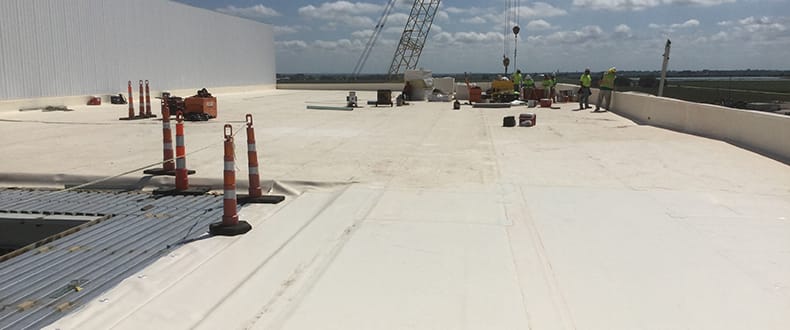
The Tax Cuts and Jobs Act (TCJA) approved by President Trump on Dec. 22, 2017, implemented major tax legislation affecting the way business taxpayers depreciate tangible property and improvements to commercial property.
Section 179 allows for building owners to immediately expense the cost of qualified improvements rather than depreciating the cost over multiple years. It also significantly increases the maximum amount a business may expense to $1MM, with the phase-out threshold increased to $2.5M. This gives qualifying taxpayers the option to expense a full reroof on an existing commercial building the year of purchase.
The following information will help you determine if your company is eligible for this preferential tax treatment of improvements to your nonresidential roof.
TCJA expands the definition of qualified real property eligible for Section 179. As of Jan. 1, 2018, qualifying property for Section 179 includes "improvements to nonresidential real property placed in service after the date such property was first placed in service: roofs; heating, ventilation, and air-conditioning property; fire protection and alarm systems; and security systems."
Given these changes to Section 179 by the new tax law, qualifying taxpayers may now elect to fully expense the cost of any improvements to nonresidential roofs beginning in 2018 and in future years. Essentially, any improvements to nonresidential roofs, including full reroofs of existing buildings, may now be expensed in the year of purchase by any taxpayer eligible to deduct expenses under Section 179.
Please contact us (or contact your tax professional) if you have questions regarding how your company can take advantage of this more favorable tax treatment for improvements to nonresidential roofs in 2018.
-1.png?width=500&height=271&name=FiberTite_Only%20(500px%20wide)-1.png)


-1.png)